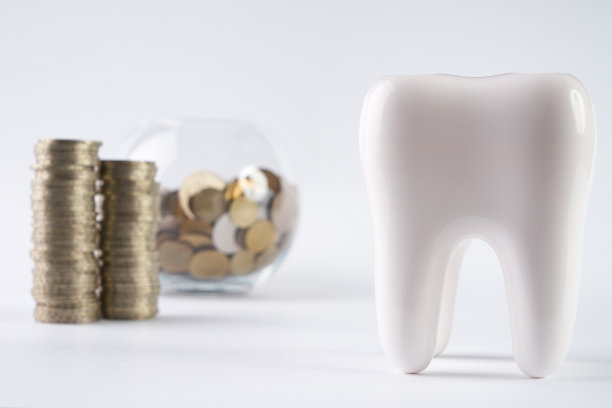Revolutionizing Smiles The Impact of Dental Implants on Modern Dentistry and Patient Confidence Through Innovative Solutions
Summary: Dental implants have emerged as a transformative solution in modern dentistry, significantly enhancing patient confidence and satisfaction. This article explores the multifaceted impact of dental implants on dental practices and how they revolutionize smiles. Through innovative techniques, implants restore not only functionality but also aesthetics, offering a permanent solution for tooth loss. We will delve into the advancements in implant technology, patient experiences and confidence, the psychological impact on mental health, and the long-term benefits of these innovative solutions. Overall, dental implants signify a remarkable shift in how we approach dental care and patient well-being in the contemporary world.
1. Advancements in Dental Implant Technology

The evolution of dental implant technology has brought forth remarkable changes in how dental professionals approach tooth loss. With the introduction of biocompatible materials, implants have become more durable and efficient. Titanium, often used for implants, integrates effectively with bone, ensuring strong support and longevity. This innovation has made implants a preferred choice for both dentists and patients alike.
Moreover, the development of imaging techniques such as CT scans has revolutionized the diagnostic phase of implantology. With precise visuals of the jaw structure, dental professionals can plan surgeries more effectively, minimizing risks and improving outcomes. Consequently, the combination of sturdy materials and advanced imaging technology leads to higher success rates in dental implant procedures, further consolidating their role in modern dentistry.
In addition to material and imaging advancements, computer-assisted implant surgery has emerged as a game-changer. Surgeons can use digital guides for accurate placement, allowing for minimally invasive procedures. These advancements not only save time but also reduce post-operative complications, leading to a smoother recovery journey for patients.
2. Enhancing Patient Confidence Through Restorative Solutions
One of the biggest advantages of dental implants is the significant boost in patient confidence they provide. After losing a tooth, individuals often experience feelings of embarrassment, reducing their willingness to engage socially. Dental implants serve as a strong remedy, closely resembling natural teeth in appearance, thereby restoring patient self-esteem.
Patients undergoing treatment often report a remarkable difference in their quality of life post-implantation. Eating, speaking, and smiling become more comfortable, allowing them to participate in activities without the fear of embarrassment. This regained functionality instills a newfound confidence, encouraging social interactions that may have previously been avoided.
Moreover, the longevity and permanence of dental implants contribute to peace of mind. Patients no longer have to worry about temporary solutions such as dentures, which can often be inconvenient or uncomfortable. Instead, they can embrace their smiles with assurance, knowing that implants can last many years with proper care.
3. Psychological Impact on Mental Health
The implications of dental implants extend beyond physical aesthetics and functionality; they profoundly affect the mental health of patients. The ability to smile freely and engage socially enhances overall well-being and happiness. Studies indicate that individuals with dental implants report lower levels of anxiety and depression compared to those relying on removable dentures.
The transformation in their physical appearance allows patients to embrace their identities more fully. This newfound confidence not only reshapes how they perceive themselves but also how others perceive them. This aligns with positive affirmations and feelings, contributing to improved self-worth and mental health.
Furthermore, the process of obtaining implants reinforces the importance of self-care and dental health. As patients invest in their smiles, they often become more conscious of their overall well-being. This shift towards prioritizing oral hygiene leads to a healthier lifestyle and better mental health outcomes.
4. Long-term Benefits of Dental Implants
The long-term benefits of dental implants are numerous and transformative. For starters, they preserve jawbone integrity, preventing bone loss that typically occurs with missing teeth. By maintaining the structure of the jaw, implants contribute to a stable facial structure, preserving natural contours and preventing the sunken appearance associated with tooth loss.
Additionally, dental implants reduce the risk of neighboring teeth shifting out of alignment. Having a secured replacement tooth helps maintain proper bite alignment and functionality, subsequently promoting better oral health. Unlike dentures, implants do not shift, ensuring that there are fewer challenges when it comes to eating or maintaining oral hygiene.
Lastly, from a financial perspective, dental implants may prove to be more cost-effective in the long run compared to other restorative options. While the initial investment may be higher, the durability and ease of maintenance often outweigh the need for replacements or repairs associated with temporary solutions.
Summary:
In summary, dental implants have reshaped the landscape of modern dentistry, fostering confidence and enriching lives. The advancements in technology, coupled with the psychological and functional benefits, illustrate their profound impact on patient care. As dental implants continue to evolve, they bring hope and smiles to countless individuals seeking lasting solutions to tooth loss.
This article is compiled by Vickong Dental and the content is for reference only



